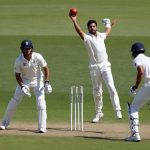Staying Fit and Focused: Essential Tips for Football Referees to Boost Physical Conditioning and Mental Acuity All Season Long
The Demanding Role of Football Referees
Being a football referee is more than just blowing a whistle and making decisions; it requires a high level of physical fitness, mental acuity, and emotional stability. Referees are the unsung heroes of the game, ensuring that the rules are followed and the game is played fairly. However, their role is often underappreciated and highly demanding.
“Referees are the backbone of the game,” says Mark Clattenburg, a former Premier League referee. “They need to be in top physical condition to keep up with the players and make accurate decisions under pressure.”
In parallel : Top Pre-Match Mental Strategies Every Football Goalkeeper Should Master
Physical Fitness: The Foundation of a Referee’s Performance
Physical fitness is crucial for referees to perform their duties effectively. Here are some key aspects to focus on:
Cardiovascular Endurance
Referees need to maintain a high level of cardiovascular fitness to keep up with the fast-paced nature of the game. This involves regular aerobic exercises such as running, cycling, or swimming.
Topic to read : Elevate Your Game: Biomechanical Strategies for Football Players to Enhance Sprinting Techniques
Strength and Power
Strength training is essential to improve overall physical performance. Focus on exercises that enhance muscular endurance, such as squats, lunges, and deadlifts.
Flexibility and Mobility
Flexibility and mobility are vital for quick movements and changes in direction during the game. Incorporate stretching exercises and mobility drills into your training routine.
Agility and Speed
Agility drills, such as shuttle runs and cone drills, help improve speed and quickness. These exercises mimic the rapid changes in direction that referees encounter during a match.
Training Regimens for Referees
Sample Weekly Training Plan
| Day | Activity | Duration |
|---|---|---|
| Monday | Aerobic Training (Running or Cycling) | 45 minutes |
| Tuesday | Strength Training (Lower Body) | 60 minutes |
| Wednesday | Rest Day | – |
| Thursday | Agility and Speed Drills | 45 minutes |
| Friday | Flexibility and Mobility Exercises | 30 minutes |
| Saturday | Match or Simulation Game | 90 minutes |
| Sunday | Recovery and Light Cardio | 30 minutes |
Using Technology to Enhance Training
Technology can play a significant role in refining a referee’s training. For example, heart rate monitors and GPS trackers can provide valuable data on physical performance during training sessions.
“Using heart rate monitors and GPS trackers helps me understand my physical limits and optimize my training,” says Sian Massey-Ellis, a Premier League referee assistant. “It’s about being data-driven to improve performance.”
Mental Fitness: The Unsung Hero of Referee Performance
Mental fitness is just as important as physical fitness for referees. Here are some strategies to maintain mental acuity:
Decision Making Under Pressure
Referees must make quick and accurate decisions in high-pressure situations. Practice decision-making drills during training sessions to improve this skill.
Mental Health and Stress Management
Referees often face criticism and stress, which can impact their mental health. Engage in stress management techniques such as meditation, yoga, or counseling.
Focus and Concentration
Maintaining focus throughout the game is crucial. Use techniques like mindfulness and visualization to improve concentration.
Practical Tips for Maintaining Mental Fitness
- Pre-Match Preparation: Visualize the game and potential scenarios to prepare mentally.
- Post-Match Recovery: Reflect on the game to identify areas for improvement and manage stress.
- Continuous Learning: Attend workshops and seminars to stay updated on the latest rules and best practices.
The Role of Recovery in Referee Fitness
Recovery is a critical component of a referee’s fitness regimen. Here’s why:
Importance of Rest
Adequate rest is essential for physical and mental recovery. Ensure you get enough sleep and have rest days in your training plan.
Nutrition and Hydration
Proper nutrition and hydration are vital for recovery. Focus on a balanced diet and stay hydrated before, during, and after training sessions and matches.
Post-Match Routine
After a match, engage in light cardio and stretching to aid in recovery. This helps reduce muscle soreness and prepares the body for the next training session.
The Application of Referee Training in Real-World Scenarios
World Cup Standards
Referees selected for major tournaments like the World Cup undergo rigorous training to meet the highest standards. This includes intensive physical training, mental preparation, and simulation games.
“Training for the World Cup is a year-round process,” says Pierluigi Collina, a former FIFA referee. “It requires a commitment to both physical and mental fitness to ensure you are at your best on the biggest stage.”
Assistant Referees and Referee Assistants
Assistant referees and referee assistants also play a crucial role in the game. Their training should mirror that of the main referee, with a focus on physical fitness, mental acuity, and decision-making skills.
Field Play and Game Simulation
Realistic Game Scenarios
Training sessions should include realistic game scenarios to prepare referees for the actual match environment. This includes simulating common fouls, offside decisions, and other critical game situations.
Feedback and Evaluation
Regular feedback and evaluation are essential for improvement. Use video analysis and peer feedback to identify areas that need improvement.: Maintaining Excellence Throughout the Season
Being a football referee is a challenging but rewarding role. To stay fit and focused throughout the season, referees must prioritize both physical and mental fitness.
Here are some key takeaways:
- Consistent Training: Maintain a consistent training regimen that includes aerobic exercises, strength training, agility drills, and flexibility exercises.
- Mental Preparation: Focus on decision-making skills, stress management, and maintaining concentration.
- Recovery: Ensure adequate rest, proper nutrition, and hydration to aid in recovery.
- Continuous Learning: Stay updated on the latest rules and best practices through workshops and seminars.
By following these tips and staying committed to their training, football referees can perform at their best, ensuring a fair and enjoyable game for all involved.
Additional Resources
For those looking to delve deeper into referee training, here are some recommended resources:
- Football Association Training Programs: Many football associations offer comprehensive training programs for referees.
- Referee Training Manuals: Detailed manuals that outline training regimens and best practices.
- Online Workshops and Webinars: Regular workshops and webinars that focus on specific aspects of referee training.
By leveraging these resources and applying the tips outlined above, referees can maintain the high level of fitness and focus required to excel in their role.













